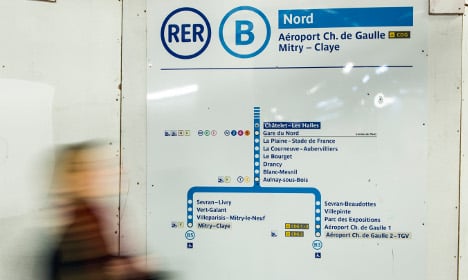Transport unions in the greater Paris region of Ile-de-France are planning to scrap the name “RER” from the city's commuter train service.
The current RER services link Paris to its suburbs via various lines: RER A, RER B, RER C, RER D and RER E.
But in future the name RER, which stands for Réseau express Regional, will not longer be present in stations, on signage or on maps.
From July 1st transport chiefs instead plan to replace it by a simple word… “train”.
The aim is to make it less confusing for travellers, especially those who are not from Paris, who might not know what RER stands for.
The Union of Transports in Ile-de-France (STIF) believes just putting the word “train” on all signage and maps will make it clear what the RER actually is.
The change shouldn't be too complicated.

As well as the existing RER the Ile-de-France region already has commuter train services that are named by letter: H,J,K,L,N, P, R and U.
So authorities can keep the letters of the current RER trains, A,B,C, D and E.
So for example those looking to change onto the RER B at Gare du Nord in future will just look for the sign for “Train B”.
The name change will also be accompanied by a change in the colour codes of the lines.
READ ALSO:







 Please whitelist us to continue reading.
Please whitelist us to continue reading.